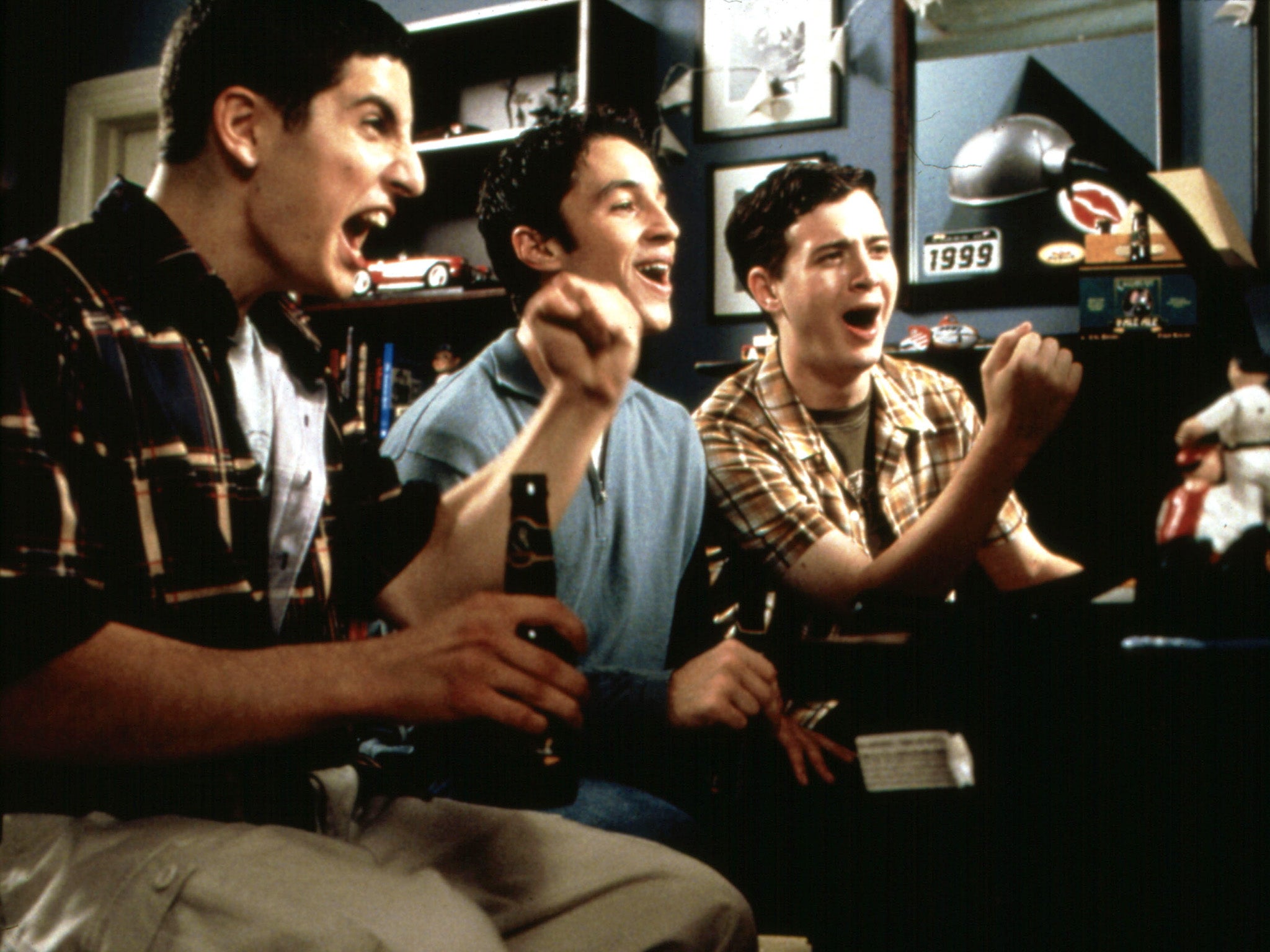The Independent's journalism is supported by our readers. When you purchase through links on our site, we may earn commission.
TikTok’s ‘virginity testing’ obsession proves we’re still fixated on the myths of female sexuality
As videos of harmful and humiliating ‘virginity testing’ practices go viral on TikTok, Eloise Hendy speaks to experts about why more needs to be done to end the errors and falsehoods perpetuated about female sexuality


Your support helps us to tell the story
From reproductive rights to climate change to Big Tech, The Independent is on the ground when the story is developing. Whether it's investigating the financials of Elon Musk's pro-Trump PAC or producing our latest documentary, 'The A Word', which shines a light on the American women fighting for reproductive rights, we know how important it is to parse out the facts from the messaging.
At such a critical moment in US history, we need reporters on the ground. Your donation allows us to keep sending journalists to speak to both sides of the story.
The Independent is trusted by Americans across the entire political spectrum. And unlike many other quality news outlets, we choose not to lock Americans out of our reporting and analysis with paywalls. We believe quality journalism should be available to everyone, paid for by those who can afford it.
Your support makes all the difference.It’s not every day that a second-year art school project makes headlines. But in October 2013, the press got wind of one Central Saint Martins student’s plan for a new performance piece, titled Art School Stole My Virginity. Clayton Pettet’s project would, he claimed, culminate in a live event where he would have sex with a male partner for the first time, in front of an audience. When the performance eventually rolled around the next April, however, some were left disappointed. The 120 or so people who’d bought tickets for the London event witnessed not a live “deflowering”, but Pettet scrubbing words like “NSFW” and “TEEN W****” off his body, while a topless teenager cut off chunks of his hair. Attendees were then led downstairs to a private booth, where each person was invited to slide a banana into Pettet’s mouth a number of times.
Many were quick to dub the whole thing a gimmick, no more than an elaborate art stunt, with a number of critics suggesting that Pettet manipulated the media circus for 15 minutes of rabid tabloid fame. Yet others discerned a deeper significance behind the final performance. For if it’s virginity that’s on the table, what could be better than an event that never really existed? If Clayton Pettet’s project was “just a hype”, couldn’t the same be said for the concept of virginity itself?
Ness Cooper, a clinical sexologist and therapist, calls the concept of virginity “a cultural and social construct, and often one that’s been used to try and justify abstinence, breeding or financial worth.” Indeed, Pettet described the impetus for his project in just such terms, defining virginity as “a performance that has been used to value women; a heteronormative term constantly used to work out someone’s worth.” Almost a decade on, the questions Art School Stole My Virginity posed are still, for want of a better word, penetrating. As Pettet put it: “Is virginity even real? Or is it just an ignorant word that was used to dictate the value of a woman’s worth pre-marriage?”
The concept of virginity, its validity and its value, remains controversial. In the last few weeks, social media users have reported a surge of “virginity testing” videos going viral on TikTok. Virginity testing is reportedly commonplace in more than 20 countries, through which women are deemed worthy of marriage or employment. Much of this recent video trend centres on ceremonies performed by Roma communities in western Europe, in which a young woman’s virginity is “verified” by an older, professional woman, or a juntaora.
This particular “virginity test” is based on the belief that inside the body of a virgin woman there is an uva (grape) – a pale kernel which contains her honra, thought to be a yellow fluid which is spilt and “lost” when a woman is penetrated during sexual intercourse with a man, or when she is “deflowered” by a juntaora. As many of the TikToks show, the “deflowering” involves pushing a forefinger wrapped in a handkerchief into the young bride’s genitals, to “burst” the “grape”, or, in more common parlance, “pop the cherry”. A series of stains, or “roses” are then displayed to a watching crowd. The value of her worth, pre-marriage, is publicly and humiliatingly assessed.
Thinking back to Art School Stole My Virginity, it is somewhat ironic that performances of virginity are, in many places around the world, more socially acceptable than performances of its supposed “loss”. Despite the latter involving consensual acts between adults, one display is imagined as proof of value; the other of debasement. Yet, “virginity tests” – whether involving a woman’s honra, or, as is the case with “two-finger tests”, her hymen – can only truthfully be described as gimmicks and elaborate stunts, as they are based in a dense web of false science and fears of female sexuality.
The essential idea that virginity is verifiable, and the body will yield its secrets to investigation, is rooted in error and falsehood. In 2018, the World Health Organisation (WHO), UN Human Rights, and UN Women called on governments to ban virginity testing globally and deemed the practice “medically unnecessary”. Instead it is designed to reify the importance of female “purity”, breed a culture of shame around female desire and embodiment, and lay down the law that sex is a gift for men.
Saarrah Ray is a DPhil in law student at the University of Oxford. Her research focuses on violence against women, with a particular interest in the legal regulation of female genital practices and the intersections of body image, race, gender and culture. “To put it bluntly,” she says, “‘virginity’ is a myth. It is nothing more than an idea attached to a useless, malleable, fleshy membrane that may or may not exist inside the vagina.”
Yet Ray makes it clear that exposing virginity as a myth does not lessen its real-world force. “The virginity myth should not be undermined,” Ray urges, “because the power of the belief in perpetuating this social construct has been partly responsible for causing serious mental and physical harm to girls and women all over the world.”
In fact, just as “virginity testing” videos were racking up views on TikTok, news broke across a number of Indian media outlets that a 24-year-old woman in Bhilwara, Rajasthan, had allegedly been forced to take a “virginity test” by her in-laws. She was then thrashed and beaten by her husband and his family after she “failed” it. Police later reported to the press that the woman had told her in-laws that, sometime before her marriage, a neighbour had raped her.
The criminalisation of virginity tests and hymenoplasty may be the beginning of having factual discussions about sex, and dismantling double standards
Violence of this nature occurs everywhere. “We now know that girls and women have experienced such harm here,” Ray says, “in British clinics, at the hands of healthcare professionals.” They are “subjected to two particular practices in which the virginity myth explicitly manifests: virginity testing and hymenoplasty”. Last year, an undercover investigation revealed that dozens of private hospitals in the UK were promising to “restore virginity” through hymenoplasty – a surgical procedure that aims to ensure that a woman will bleed the next time she has penetrative sex, so that she can pass the virginity test. Health professionals and campaigners have condemned both practices as a form of violence against women and girls.
Yet, there are signs that, in the UK at least, the law is finally catching up to the harm the virginity myth causes. Earlier this year, the government added an amendment to the Health and Care Bill that made hymenoplasty and virginity tests illegal. Ray describes the move as “monumental for the feminist movement,” as it clearly demonstrates that UK law “proscribes forced actions upon girls and women that reduces their bodies to sexual vessels, and that degrades and subordinates the value or worth of their lives.”
But, if the law is shifting, what about culture? Changing laws may not be enough to end harmful, pseudo-scientific beliefs about virginity, nor social expectations of female sexual “purity”. Ray admits that it’s “unlikely” that the law can solely change people’s views on sex. She hopes, however, that the criminalisation of virginity tests and hymenoplasty in the UK “may be the beginning [of] having factual discussions about sex, specifically sex positivity, and dismantling double standards that effectively conceals violence against women and girls.”
Kalila Bolton and Holly Jackson are the co-founders of “woman’s sexual wellness brand” SheSpot. Both acknowledge the importance of the amendment to the Health and Care Bill, but say they “still feel like there is a lot of work to be done to fully tear down archaic ideas of sex and virginity”. After launching SheSpot in 2021, Jackson says she has often been “surprised by how deeply rooted sexual shame and stigma is among the women who we speak to,” and how this cuts across all ages. “There are still stubborn taboos around self pleasure in particular,” Jackson says. In their research, they “heard several accounts of male partners expressing discomfort with their wives/girlfriends masturbating outside of partnered sex,” something that, to Jackson, “feels like an extension of outdated views around virginity and the idea of gifting sex to men.”

For Elena Zaharova, CEO and co-founder of sex and relationships app Purpur, the essential issue is a broader lack of consideration or respect for pleasure when it comes to sex education. In her view, it still treats sex as “an act of intimate physical interaction between people, not an attempt at communication or pleasure”. Jackson and Bolton agree, and suggest this “lack of knowledge around healthy sex and pleasure, paired with increased consumption of unchecked online content” is leading to “a perfect storm” for young people. They believe it is this toxic combination that is “perpetuating harmful ideas relating to sex and virginity” and fuelling “the viral nature of the TikTok videos showing virginity testing”. Ness Cooper, founder of The Sex Consultant, also stresses that part of the challenge in changing deeply ingrained cultural ideas about purity and pleasure is working against conservative-minded algorithms. “TikTok algorithms sadly stigmatise and are more likely to remove sex-positive posts,” she notes, “and keep posts that focus on sex negative and stigmatising outlooks such as virginity testing.”
However, there are also reasons to be optimistic. “Sex education within the UK is moving away from abstinence-based education,” Cooper says. Now, “the focus is more on teaching about consensual sex and normalising healthy sexual behaviour rather than shaming.” A broader, more sex positive curriculum – which centres queer sex and relationships, self pleasure and consent – paired with a change in the law, will, Cooper hopes, go a long way to countering the “perfect storm” of myth and unchecked online content. “I predict things like virginity testing will become less popular over time.”
Ultimately, then, perhaps what is needed is more frantic discussion, public performance, and elaborate stunts from art school students. Except, rather than working from shock, shame and myth, starting and ending with acceptance, comfort, and pleasure.



Join our commenting forum
Join thought-provoking conversations, follow other Independent readers and see their replies
Comments